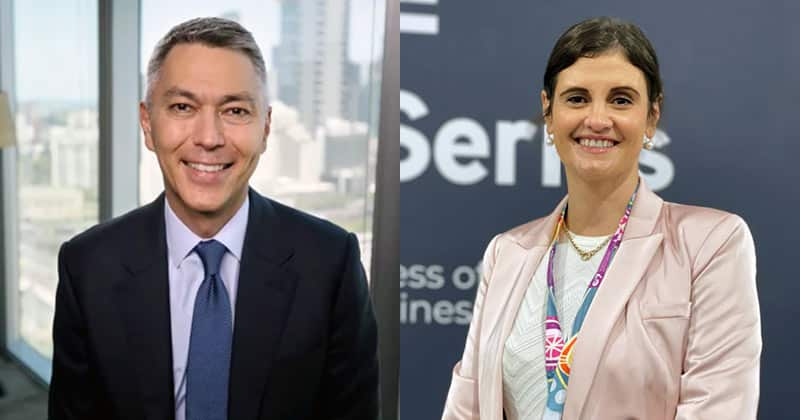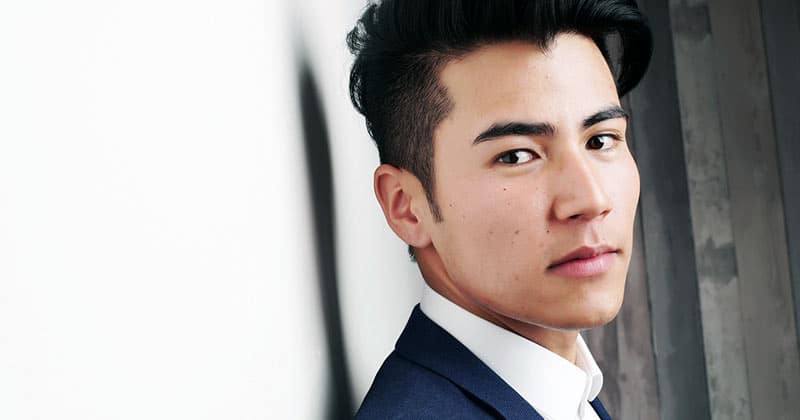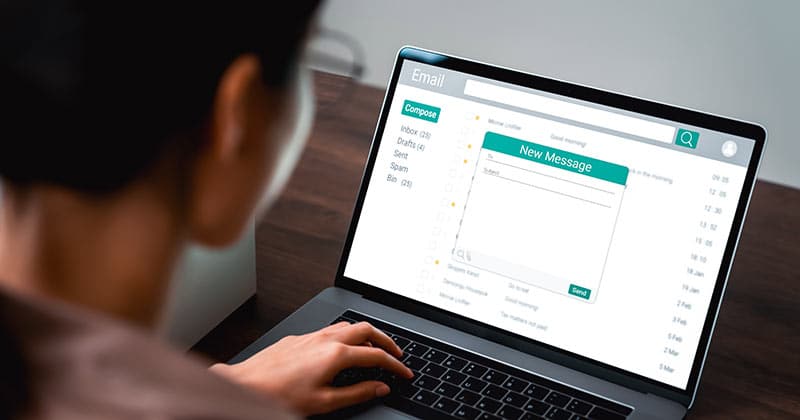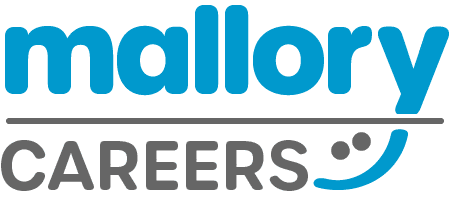If you’re looking for a new role this year, here are ten excellent tips to boost your job interview skills. For any kind of professional job in Australia, these are proven methods to give you the best possible chance of being made an offer.
You can work on you interview skills at any time. Even if you’ve only been in your current position for a short while, it never hurts to brush up on your interviewing skills before kicking off your job search. Actually, you may benefit by practicing when you are least stressed and most confident – that is, when you are not desperately trying to land a new job!
The job interview process can be painful at times, but it will have all been worth it once you land that great role. So, what are you waiting for? Start your job search off on the right foot today and build confidence and enthusiasm for the next interview opportunity.
1. Do Research to Prepare

The first tip may be obvious, but you need to do your research – of the job, company, and the interview person or panel. Getting background information is paramount to proving your interest in the position as well as your industry knowledge.
Carefully read over the description of the advertised job – including selection criteria, responsibilities and duties, any major projects, customers, etc. – until you have an excellent feel for what the job entails. The organisational chart and LinkedIn profiles of the interviewers may also provide important clues for the kinds of interview questions you’ll be asked.
People tend to look towards their own work when framing questions. Try to immerse yourself in what the company and interviewers are doing. You may pick up some knowledge that you can include in your answers so you look like the perfect fit for the role.
Preparation also means cleaning up your online image on LinkedIn, Facebook, etc. Photos from drunken barbeques or the beach may not be the first impression you want to make with a potential employer. Search for yourself online to see what comes up.
Common interview questions
Before any job interview, it’s a good idea to think about and rehearse for common questions that are likely to come up. Research the particular role but also prepare for generic questions such as these.
- Tell me about yourself.
- What is your greatest weakness?
- What are your greatest strengths?
- Did you ever have a boss or co-worker you didn’t like?
- What are your career goals for the future?
- Why should I hire you?
- Why are you the right fit to succeed in this role?
- Is there anything that would prevent you from working overtime?
- Why do you want this job?
- Do you have any questions for us?
2. Practice Talking About Yourself

The more interviews you go on, the better you will get and, hopefully, the more confident you will be. On average, a company will interview around seven to nine people to fill one position. It makes sense to go on as many interviews as possible. Don’t get discouraged. It really is a numbers game.
Write and talk about your professional background, education, work-related experiences, strengths and weaknesses, etc. as much as possible. You can’t be become fluent in speaking about a topic without practice. The best public speakers have communicated about their areas of expertise so much that the words roll out without them even trying.
Here is one of my best job interview tips. When you rehearse and practice for a job interview, I think it’s best to try to keep it quite informal and relaxed. If you’re sitting in a room by yourself saying answers to questions, the tone is likely to be off and you could build up anxiety. Better to sit down with a friend and have a conversation and maybe have them throw a few questions at you. If you don’t normally talk about yourself much, try do it next time you’re with friends such as by mentioning that you’re going for a new job.
Writing also helps. When you write about a topic, you’re forced to think about it and structure your memories and concepts. So, write out answers to practice interview questions. You’re answers don’t have to match exactly what you might say in person. In an interview, you always need to read the room so to speak and adjust your tone and message.
3. Know Your Resume

You should be able to explain every item on your resume or CV in detail. Have your professional story down to a two or three minute pitch. Be ready for likely interview questions.
The best way to use your resume to your advantage is when answering general questions. Your education and experiences provide real-world context and texture.
Suppose you’re asked, “Can you give a personal example of effective teamwork?”. To answer, it’s easy to talk about work history that you’ve already thought about and documented on your resume. You might answer, “When I was working for six months as the service coordinator, our team achieved excellent customer satisfaction. Key contributing factors were …”
Also be able to answer questions like, ‘What jobs did you do while working at Bunnings?’ and ‘Why do you want to leave your current job?” quickly and without hesitation. Some employers may be interested in why you chose your particular university or college, or degree or diploma. So brush up on details.
4. Be Discreet About Job Search

The last thing you want to do is mess up relations with your current employer when looking for a job. So avoid letting people know you’re going for job interviews if you can help it. Scheduling around lunchtime may help. Another option is to just take a day off when you have an interview.
If you’re close to landing a job, the recruiters will want to check out references. You’ll normally need at least two referees and they should be listed in your resume. Usually, they’ll only be contacted after you’ve done an interview.
Definitely give a heads up to any referees who might be called upon to provide a reference over the phone. Prime them for talking about you in a positive light. Talk to your referees in an optimistic way about your goals and try not to give the impression that you’re desperate to jump ship.
5. Dress and Look Your Best

Be a professional when it comes to dressing and presenting yourself in an interview. It’s actually not hard. Maybe start by getting a haircut as soon as you know a job interview is coming up. Try not to get a haircut the day before in case you’re unhappy with your new hairstyle.
Dress so you look the part and are ready to do the job. When greeted by your interviewers, they should just think, “Yes, this person looks well dressed” and then you all get on with the interview. When in doubt, men should wear a suit, and women should wear their best professional attire.
You should be able to figure out the dress code before the interview. Search online for professional images of people employed by the organisation, including the interviewers. And dress like them. Don’t be afraid of dressing like your future boss or the boss’s boss since you may want to be in their position one day.
Be aware of the company culture and dress code. But, even if you are certain of a more casual environment, a good rule of thumb is to dress up one notch. Obvious hygiene and grooming aside put your best foot forward – shined shoes, crisp shirt, manicured nails and a haircut never hurt. Hipsters, you may want to trim those beards.
High-fashion or sexy looks are unnecessary and could easily backfire. You may look lightweight or a distraction. You may even be seen as a rival for people’s attention. Women, don’t wear very high heels or show lots of cleavage. Men, wear clothes that fit and aren’t too tight.
6. Arrive at the Right Time

Being late is inexcusable. But arriving 20 minutes early can make an interviewer feel rushed and start the meeting off with unnecessary tension. Wait in your car or outside the building if you’re early.
Be available five minutes before the interview starts. Arrive earlier to be safe but don’t announce yourself until close to the right time. If your interview is scheduled for noon, for example, present yourself between 11.55 and 11.59.
In Sydney, Melbourne and other big cities, most buildings have security to pass through. Allow time to locate your destination and get through security. Then be prepared to wait nearby or in the lobby until the scheduled time. Remember to turn off your mobile phone.
7. Show Your Well-Balanced Personality

Take every opportunity to demonstrate your personal skills. While you should be natural, make good amounts of eye contact, smile and laugh when appropriate, be reasonably confident, and talk well of others. Display open, friendly body language. Show off your verbal communication skills.
Employers are interested in assessing how well you will fit into their team. And it’s only human nature to want to work with people we like. So be personable and don’t be afraid to touch on interesting things about you that they’re likely to remember, such as social activities or sports. Be someone they’d like to catch up with at a business function or other social event.
What’s important is to show the interviewer that you’re personable and easy to get along with. Companies don’t like having to manage difficult employees.
Alison Doyle
Employers may be interested in why you moved on from each position listed on your CV or resume and especially why you want to work for them. Make sure your job moves make sense. Have a truthful answer ready that highlights the goals and accomplishments you achieved in each position. This is a great opportunity to show your ambition and motivation to progress your career.
8. Be Honest But Strategic

Honesty is usually the best policy and this applies to job search as well. If you lied on your resume, you may have a tough job in the interview trying to cover up. Any lies in the interview could also have you on the defensive and sounding inauthentic. The hiring manager may also do background checks, such as verifying your education credentials and doing a medical assessment.
Honesty comes through in your tone and is easier than trying to make up a story. Remember, you don’t have to be perfect, just the person they want to hire.
But blunt honesty would also be stupid. If you once got fired and have a glaring gap in your work history, for example, figure out a truthful way of explaining those events in a way that doesn’t make you sound incompetent or difficult. For example, you could say, “Working in the accounts department wasn’t for me because I enjoy being part of a team. I took some time out to reassess and develop new skills.”
Putting a positive on your work history, abilities, and strengths and weaknesses is just part of the interview process. Think before the job interview about how you can present yourself honestly but in way that shows you in a good light. There’s a strong chance you’ll be asked difficult questions such as to identify your biggest weakness or talk about conflict you’ve experienced in the workplace.
9. Listen and Ask Good Questions

Listen carefully to questions and don’t be afraid to take notes when the interviewers are talking at length. Write down anything you’d like further clarification on.
Good questions from you help avoid running into trouble from poor communication, including poor communication from the interviewer. Questions also indicate you’re serious about the role, switched on, and keen to learn. By engaging in a natural two-way conversation, you’ll also establish a rapport with the interviewers and become more relaxed.
You must always answer the specific question asked. To be successful, it’s essential you listen and don’t go off on a different tangent. The interviewers are likely to rate your response to each question and compare your answer to what others said. If you don’t answer the actual question, you essentially fail that part of the interview.
You can almost bet that the recruiter will conclude the interview by asking if you have any questions or anything further to add. Here are three important tips about the end of the interview:
- You don’t have to ask questions at the end. The interviewer may conclude the interview by asking if you have any questions, but it’s mainly a polite way to finish off. It’s fine if you don’t have one.
- Never ask, “When will I find out if I got the job?” That’s placing a demand on the interviewers and may be irritating to answer. It’s a common mistake and they may be tired of explaining the selection process.
- Make a short, polite statement like, “I just want to say, thanks for the opportunity to interview for this role. I’m definitely interested in the job after talking to you and hope to be considered further.”
Above all, place yourself in the moment. Just be natural when meeting the interviewer(s). When you talk to someone you like, you probably listen to them well and make sure you each understand each other by asking questions. The same goes for job interviews.
10. Follow Up After the Interview

Don’t let more than 24 hours pass before following up with a brief thank you email. Get in early in case they’re still ranking candidates. Keep it short and sweet, stressing your interest and opening the lines of communication for further questions.
Be specific about the job so your email doesn’t sound generic. Feel free to mention anything memorable of a positive nature that came up during the interview. Here’s an example.
Subject: Thanks for interviewing me for the beekeeper job
Dear Greg,
Nice to meet you and Stacey yesterday and thanks for the opportunity.
I enjoyed hearing about how your EzyBees operations work. I’ve always been keen to work with bees and could really see myself taking to the role. It would be a great opportunity for me.
Am happy to provide any further information if you need it. Please don’t hesitate to ask.
Sincerely,
Kevin Andrews
Remember to not overdo it either. The longer and more detailed the email, the more opportunities for writing mistakes, misunderstandings to be laid bare, and other red flags to be raised. You also don’t want to put pressure on the interviewer to get back to you. The last thing they need is more work from one of the applicants.
The next thing is to wait for the job offer to come through. Be patient as it could take a while and anything might delay the process, such as reference checks or one of the panel taking leave. You might even be second in line and only get a job offer something falls through with their first choice.
A courteous hiring manager will eventually let all applicants know the outcome. You can politely ask for feedback if you’re unsuccessful and genuinely thought you had a great shot. If you got the job, fantastic and remember for next time what you did to be successful.

Timing is a key situation for interviews. Nobody wants to show up late but if you get there too early, you may look too eager. That’s only my take. I haven’t interviewed in a long time so this will be something I can fall back on if I ever have to in the future.